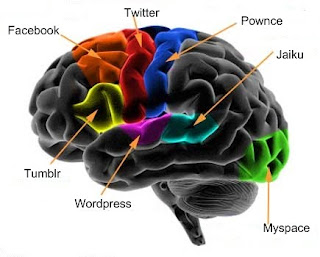
Social networks can make you fat and happy.
That's not an opinion, that's a fact revealed by medical data collected over the past 50 years.
Simply put, our friends heavily influence our habits and happiness, from our weight to smoking (and quitting) and our overall joy.
All these things have a viral quality to them. You eat more, they eat more. You stop smoking, they are more likely to quit. Happiness is similarly contagious.

This image shows the Framingham social network, mapping the people of Framingham, Mass. in 2000.
Blue = sad
Yellow = happy
Green = shades in between
A quick look makes clear that sadness (blue nodes) and happiness (yellow) tend to cluster and spread together.
And the technology that powers online social networks does not change the basic dynamics common to all social networks.
It turns out that Facebook operates like most other social networks. It transmits the happiness virus just as well.
Just knowing that makes me happy.








